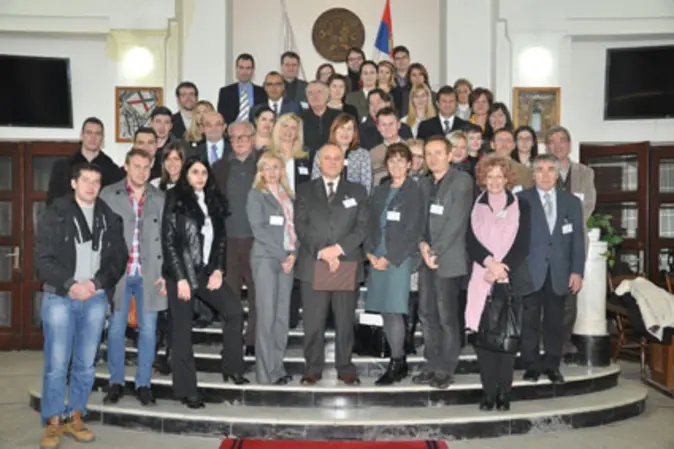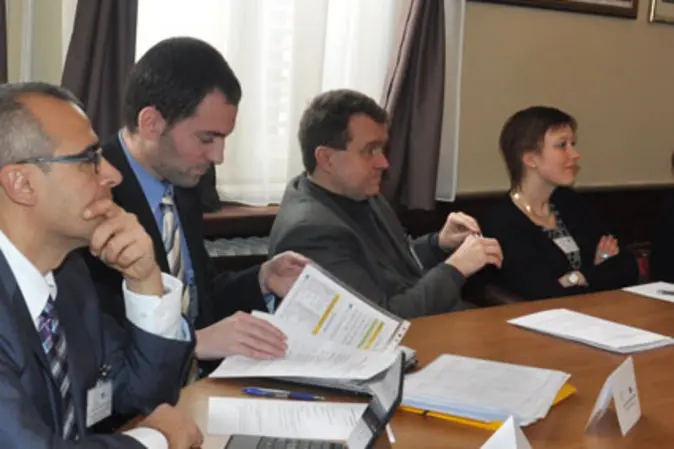At the end of January, the University of Niš hosted a meeting for all of the FUSE participants.
Andreas Weihe (centre right) and Alexandra Wolf (right) learn about the Serbian university system.
Structural Assistance in Southeastern Europe
Encountering Western European students at a Serbian university is a rare occurrence indeed. In order to change this, Serbia is making efforts to bring its universities’ infrastructures up to the European standard. This structural overhaul requires assistance from experienced foreign partners, and one of these is the University of Bamberg.
As participants in the EU’s FUSE project (Fostering University Support Services and Procedures for Full Participation in the European Higher Education Area), the head of the University of Bamberg’s International Office, Dr. Andreas Weihe, and Alexandra Wolf of the university’s Welcome Center have been working towards the modernisation of Serbia’s academic landscape since the beginning of this year.
On the Serbian side, the universities of Niš, Belgrad, Novi Sad, Kragujevac and Novi Pazar, as well as the national Ministry of Education and Science and the Serbian Universities Students’ Association are all involved in the project. One major reason for their efforts is the current absence of ERASMUS exchange programmes in Serbia – programmes that traditionally serve as a platform for international exchange between students and instructors, and that bring with them a wealth of international cooperation, experience and structural resources.
Insights into Effective Internationalisation
The main task of Bamberg and other European universities lies in providing their Serbian partners with information and know-how pertaining to the internationalization of academic infrastructure. Those involved meet twice a year to share findings and exchange information and ideas. Besides providing assistance to Serbian universities, Weihe and Wolf see their engagement as an opportunity to evaluate the prospects of future exchange partnerships with the participating Serbian universities.
FUSE examines a number of questions pertaining to factors considered essential for a functional student exchange programme: How is the coordination of the ERASMUS Programme carried out? What opportunities are provided for learning the language at the university, and are courses or internet resources available in English? What costs and tuition fees need to be considered? Conversely, Serbian FUSE participants learn about various European university concepts and must ultimately consider for themselves which of these they would like to and would be able to implement. FUSE has been established as a three-year programme which will conclude in November 2016.
More information on FUSE and other University of Bamberg projects in Southeastern Europe is available in German in the January 2014 issue of uni.kat (pages 22-25).
Notice
This press release may be used without restriction for journalistic purposes.
Please contact the press office with any questions or image requests by email or telephone at medien(at)uni-bamberg.de, or +49 (0)951-863-1023, respectively.

